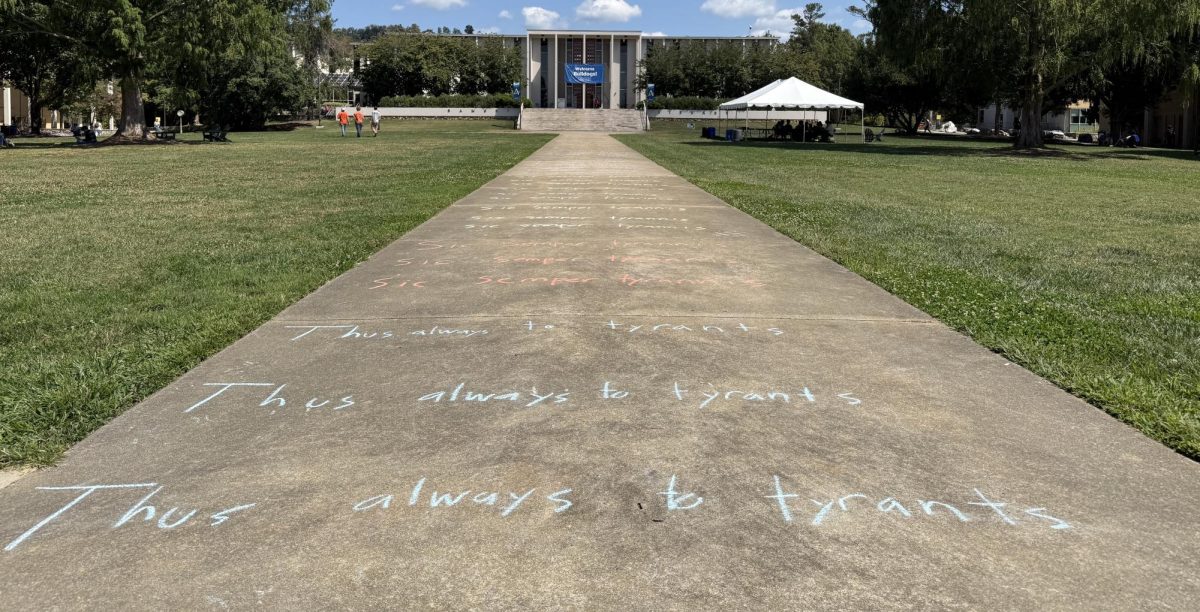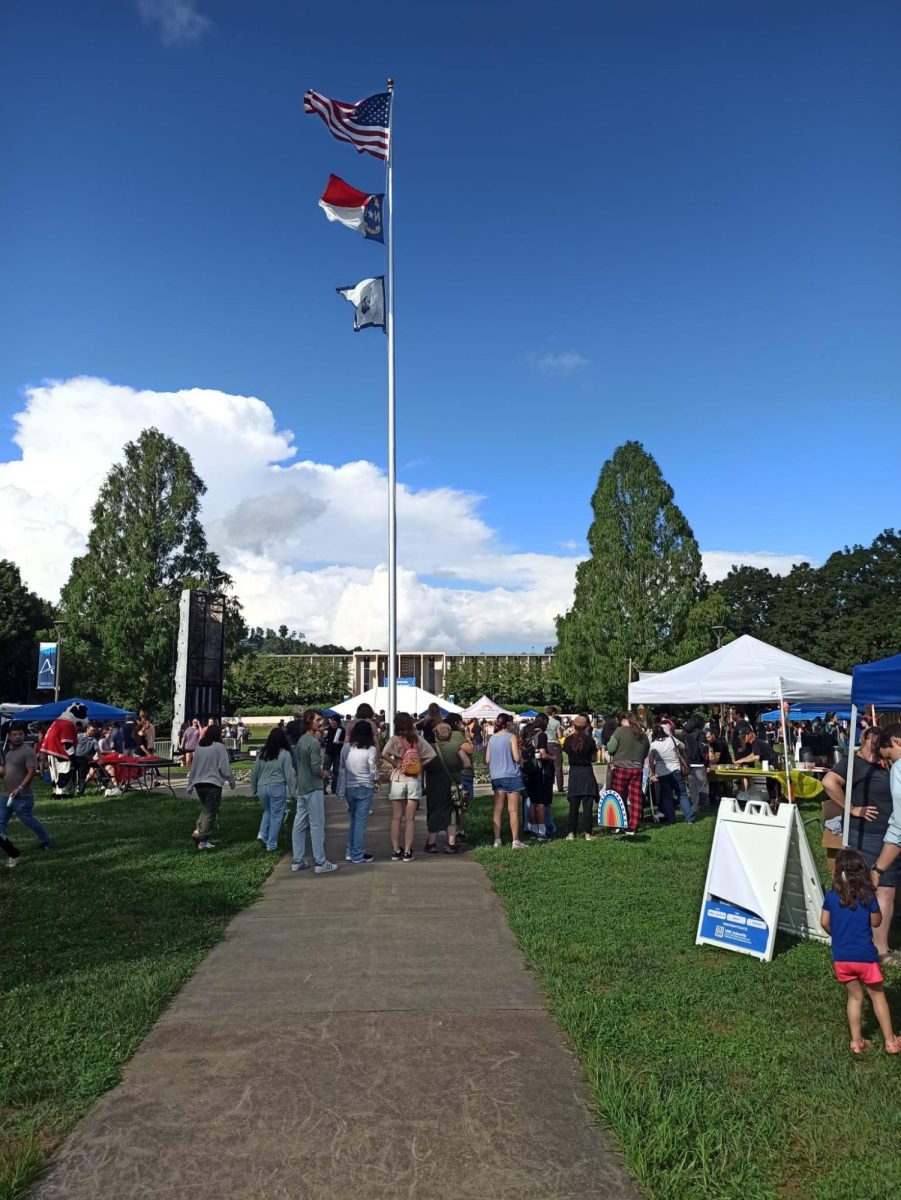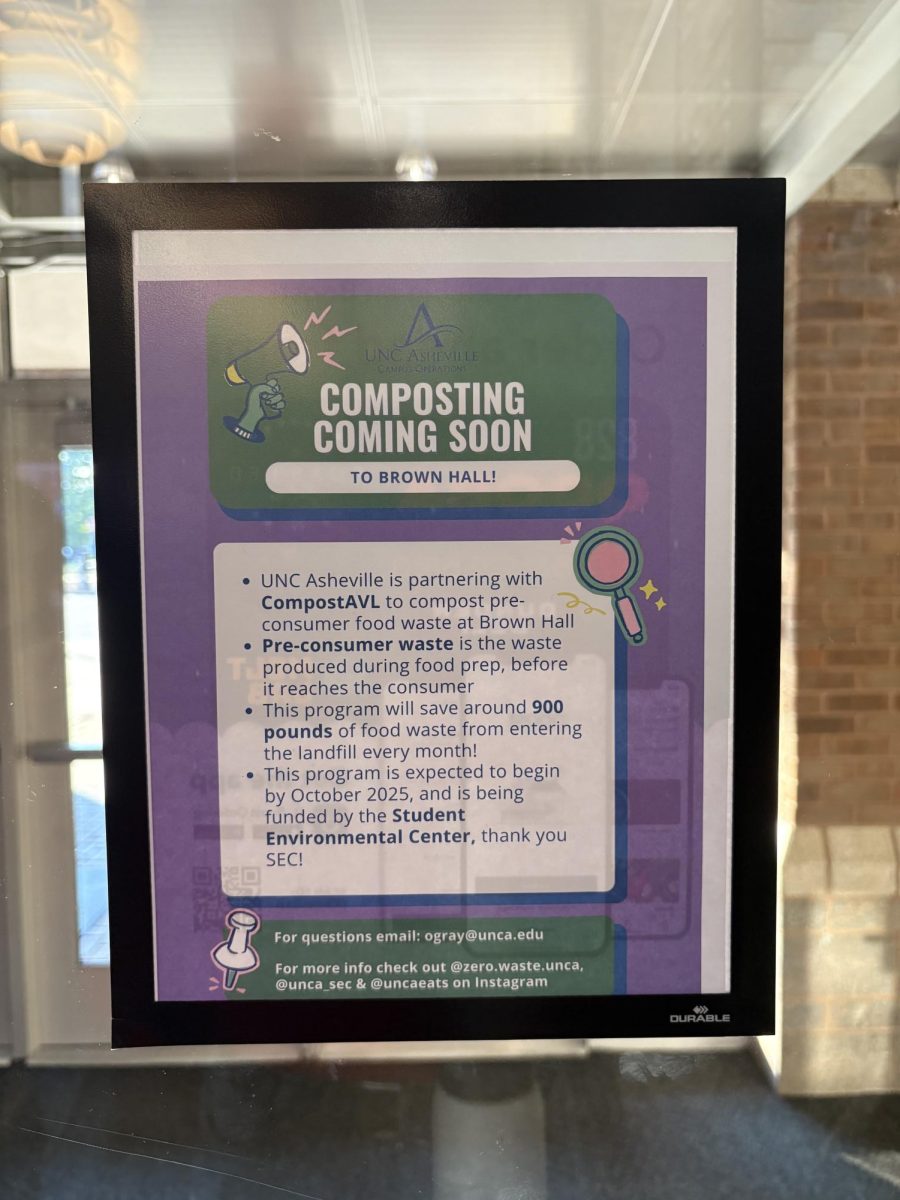NCA composting is returning to campus this fall, and reactions from the student body are mixed about the cost, and the program’s new approach.
C.J. Jo, a student at UNCA, shared their thoughts on the returning campus initiative.
“Oh, that’s exciting. I’m glad that we’re bringing that back, because I feel like it’s really important for our community to be able to have that,” Jo said.
Some students are not aware of the composting changes as the initiative shifts to preconsumer composting.
“I’m glad we’re still composting to some degree, but that feels very limiting. I wish we could compost fully, but I get it. We have to slowly have this process,” Jo said.
During the first Student Government Association meeting at UNCA, Oliva Gray presented senators with details on funding and what the initiative is bringing to campus. But SGA senators also voiced opinions on the program.
Rory Killian, senior senator, has been questioning faculty about the cost of composting and how to bring it back to UNCA since last year’s SGA. With the new initiative underway, Killian is sharing his concerns.
“So I think the university really does need to make more of an effort to consider on-site composting or more partnerships with commercial composting facilities in ways that are more than preconsumer composting,” Killian said.
Oliva Gray, environmental specialist at UNCA, explained why the school is not pursuing post-consumer plans for the returning program.
“I was hesitating because I don’t know if I could say unaffordable. Until we received a preconsumer proposal plan from this company we are going to be working with, called Compost Asheville,” Gray said.
Gray was referring to the university’s $6 million deficit, which made it difficult for her predecessor to find a plan after the previous composting partnership UNCA had ended.
“It makes it much more viable because it’s not the entirety of our food waste. It’s much more affordable,” Gray said.
The UNCA Student Environmental Center is funding the composting program, which will cost about $5,000, according to SEC co-director Cameryn Turner.
SEC is looking to split the cost with SGA, according to Turner
Killian believes more efforts could and should be made to expand composting programs on campus.
“I think more effort should be made to establish pre- and post-consumer composting programs on campus,” Killian said.
Gray explained why on-campus composting would bring challenges.
“The scale of food waste that we produce, like at the dining hall, we couldn’t do backyard composting. We would have to have a much bigger system,” Gray said.
Turner provided context for how much preconsumer waste the campus dining hall produces.
“UNCA produces 1,000 pounds of preconsumer food waste a month,” Turner said.
Alternatives for composting are already being considered by Gray.
“Something like an aerated static pile system would help backyard composting, which I hope we can do in the future. But the startup cost is high for that, and it requires land that is designated for it,” Gray said.
UNCA’s composting webpage has not been updated to inform students about the new composting plan.
“UNC Asheville is currently not composting food waste,” according to the university’s composting webpage.
The site does include a food waste google form that students or anyone can access for feedback.


![Brooke Pedersen [second from the right] and Luis Reyes [right] hold banners during the Wrap The Woods event.](https://thebluebanner.net/wp-content/uploads/2025/09/ELIZABETH_PRITCHITT_IMG_3470-1200x804.jpg)















